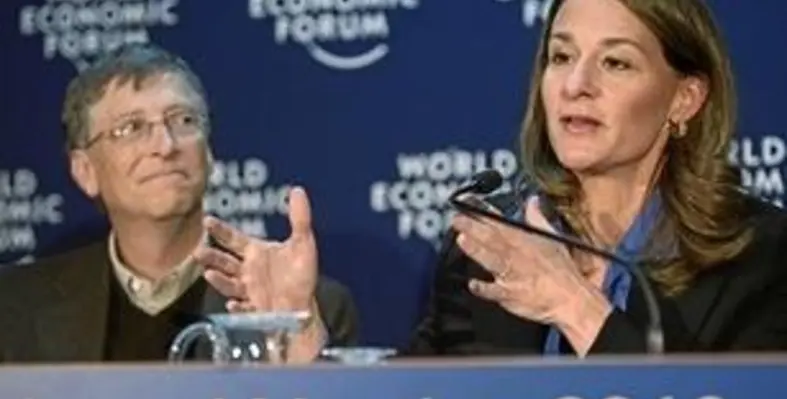African governments have an historic opportunity to simultaneously secure significant new investments in agriculture and redefine relations with European partners by embracing a clear, African-led commitment to boosting food production. That is, in summary, what the Montepellier Panel Report suggests.
The Montpellier Panel is a group of 10 African and European experts from the fields of agriculture, sustainable development, trade, policy, and global development. Their report, compiled with the support of the Bill & Melinda Gates Foundation, reflects concern that Europe risks squandering a rare moment to scale-up a “rich diversity” of activities already underway across Africa that “could achieve food and nutrition security through agricultural development.”
Importantly, the report insists that both Africa and Europe needs to work in tandem to realise the opportunities that are currently presenting themselves. “Europe needs a strong signal from African governments that the continent is primed to pursue a major transformation in food production,” says Namanga Ngongi, president of the Alliance for a Green Revolution in Africa (AGRA) and a member of the Montpelier Panel. “We can make this a more balanced and mutually beneficial partnership by boosting our support for the farm sector and presenting a strategy that directs European investments to the most promising programmes and most perilous problems.”
The report examining Europe’s role in supporting African agriculture came as policy makers in both regions prepared for the third Africa-EU summit, held in November in Tripoli, which will define Africa-EU cooperation for many years to come. The analysis also coincides with ominous signs that global commodities markets could rock Africa with another round of sharp increases in food prices.
The sudden spike in food prices that occurred in 2007 and 2008 spread hunger and hardship to millions of Africans. The UN Food and Agriculture Organization (FAO) recently warned that prices in some cereals are approaching 2008 levels. The Montpelier Panel is urging European and African leaders to move quickly to build a firewall against another surge.
The panel, presenting their case to UK’s Members of Parliament in late October, proposed establishing regulatory processes, along with global and national grain reserves, that could be employed to reduce extreme price volatility in global markets for cereals and staple crops, which have their greatest impact on poor countries.
“We want to see Europe and Africa working together to counter immediate threats to food security, and a new round of high food prices, while simultaneously increasing support for African-led efforts that for the first time in generations show that African governments are determined to literally grow their way towards health and prosperity,” said Sir Gordon Conway of Imperial College in London, who chaired the panel.
The Montpellier Panel Report, entitled “Africa and Europe: Partnerships for Agricultural” Development, focuses on the follow-through from the L’Aquila G20 summit where wealthy governments in Europe and the US pledged US$22.5 bn to seek food security worldwide, with much of the funds to be spent on agriculture development in sub-Saharan Africa.
The analysis presents a situation in Africa in which investments are needed to address chronic problems and exploit the newly emerging African-led Green Revolution that is focused on increasing production on smallholder farms.
For example, 22 African governments have signed on to the Comprehensive Africa Agricultural Development Programme, (CAADP) which pledges signatories to investing 10 per cent of national budgets toward improved food production. Ghana, Ethiopia, Mali, Malawi, Burkina Faso, and Senegal are among the countries where agriculture spending already has reached or exceeded that 10 per cent threshold.
Ngongi and Conway identify developing a strong cadre of Africa-trained agriculture experts will be critical to ensuring Africa’s smallholder farmers have access to the technology and knowledge required to increase food production and participate competitively in regional and global markets.
Speaking to British parliamentarians, Conway pointed out a recent World Bank study that found that relatively modest investments in graduate level education programs in Africa could boost per capita GDP by 12 per cent. He called for African governments that have committed within the CAADP to spending 10 per cent of budgets on agriculture to invest a defined portion in programmes at African universities that offer advanced degrees in agriculture-related studies.
“Pledging a significant amount to agriculture education is an example of how African governments help establish priorities for their European partners to follow,” Conway said. “European universities have played a direct role in the rapid growth in farm production we experienced in the 20th century, so surely European policy makers understand the link between investments in homegrown agriculture expertise and a viable and competitive farm sector.”
Today, many African regions are demonstrating that with the right kind of assistance, African farmers can produce far more food and provide the foundation of a more food-secure and prosperous continent. “Africans are making admirable progress, but the fact remains that the enormous growth required cannot be accomplished by Africans alone,” Ngongi said. “From rebuilding our neglected university programs to boosting seed production and improving markets, there are many opportunities for Europeans and Africans to achieve a new level of consensus and cooperation and bridge the gap that has emerged between bold pledges of assistance and thus far a failure to deliver on the ground.”
Stephen Williams














